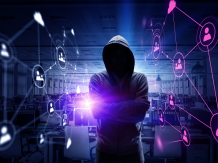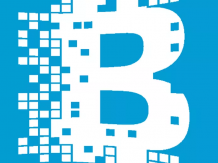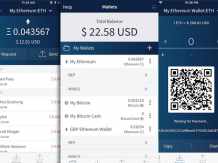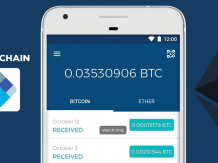While some ideas may seem like solutions looking for a problem, others are more closely tied to real needs. They redefine what use the blockchain could be put to eliminating the need for banks, or even for aspects of government. Its clear that the blockchain has expanded beyond bitcoin and cryptocurrencies but as with all disruptive technologies, in which direction it will be taken remains to be seen.
Author:Paul Levy is a Senior Researcher in Innovation Management at the University of Brighton.
Click to share on Twitter (Opens in new window)
Not all uses involve payments. For example, Kim Jackson and Zach LeBeau weremarried on the blockchainin November. Is a blockchain marriage legally binding? Well, some parts of it would fall within contract law, but its a first symbolic step.
Click to share on LinkedIn (Opens in new window)
4 ways blockchain will transform the mining and metals industry
Click to share on WhatsApp (Opens in new window)
8 amazing facts to help you understand China today
Centre for the Fourth Industrial Revolution
Markus Brunnermeier and Joseph Abadi VoxEU
Image: A Bitcoin (virtual currency) paper wallet with QR codes and a coin are seen in an illustration. REUTERS/Benoit Tessier.
A key aspect is the programmablesmart contract: code stored on the blockchain thatautomatically executes when certain conditions have been met. In uses that involve a financial transaction, it makes sense to use bitcoin or some other digital currency for the same reason by doing so, transactions can be automated and guaranteed without recourse to third parties, such as a bank.
8 amazing facts to help you understand China today
A weekly update of whats on the Global Agenda
These are the three main problems affecting blockchain
A digital crypto-currency has just launched that isgenerated by human movement. Bitwalking dollars can be earned simply by walking, unlike other digital currencies such as bitcoins that require mining though using computers to solve cryptographic problems. With Bitwalking, a phone app counts and verifies users steps and walkers earning approximately BW$1 for every 10,000 steps (about five miles). These can be spent in an online store, or traded for cash.
Most people who have heard the term think that the blockchain is only something to do with cryptocurrencies such as bitcoin, litecoin, doguecoin and others. Its the technology that underpins digital currencies and ensures that all transactions are properly conducted and recorded. But what is stored on the blockchain need not be just a currency unit it can be put toall manner of other interesting uses.
The blockchain isdefinedas a system thats secure without a higher authority, distributed across many strangers computers, yet tamper-proof, and promises a mechanism for trust mediated directly between individuals. Essentially, by providing a distributed means to guarantee and verify transactions, the blockchain offers the ultimate opportunity to cut out the middleman.
In other cases, the blockchain can be used for peer-to-peer exchange or sale. Imagine you have an electric car. When your charger is unused, you can rent it out to other car owners, paid in bitcoins via a blockchain smart contract.
This article is published in collaboration withThe Conversation.
A radically different application comes fromBitnation, a project aimed at using blockchain to decentralise governance. Bitnation is offering victims of the refugee crisis anemergency digital ID and bitcoin-based credit cardwhich can be used to receive funds from family members or friends without bank accounts.
Australian software firmEdgelogicoffers a glimpse of how blockchain technology could be used at home, a bridge between digital payments and the Internet of Things. For example, a sensor could report to the blockchain when it detects damp, an alert which triggers a set of instructions that transfers cash for repairs from an insurer to a claimants account, even before the person knows anything is wrong.
Palm Oil: With Malaysia cracking down on production, whats the alternative?
The views expressed in this article are those of the author alone and not the World Economic Forum.
World Economic Forum Privacy Policy
Whats the future of Blockchain?
Another use is automated security, using code embedded on the blockchain to trigger granting or denying access depending on the requester. This way security is assured, as no third parties are involve and no one holds the keys: the lock has become one with the key, and assurance lies in the distributed trust of a shared, anonymous network.
One firm supplying this isSlock. The owner can set a deposit amount and a price for renting a property, which the user pays through a blockchain transaction (not even Slock is a middleman), which permits the user to open and close the smart lock through their smartphone. Its alock activated by money, without any need for third-party authority. And its not just start-ups such as Slock that are taking notice bigger players,including IBM, are onto it too.
Many major companies are looking to the blockchain as a way tosimplify and strengthen supply chains, where the blockchain could record each step a product has taken. For example, it could be used to guarantee the origin of foods.
To keep up with the Agendasubscribe to our weekly newsletter.
Share on Facebook (Opens in new window)
A weekly update of whats on the Global Agenda
Explore the latest strategic trends, research and analysis
Centre for the Fourth Industrial Revolution
Rina Chandran Thomson Reuters Foundation
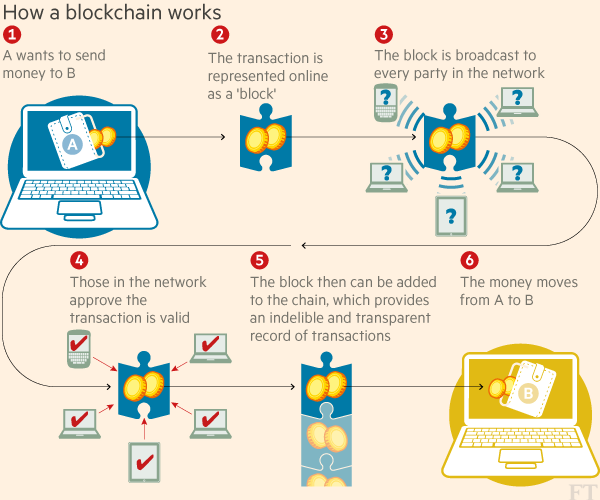
What can blockchain be used for, other than Bitcoin?
We use cookies to improve your experience on our website. By using our website you consent to all cookies in accordance with our updatedCookie Notice.
Jack Mas Alibaba has launched a blockchain-based payment service
With this it is possible for an individual to prove their existence and identity through family relations cryptographically, recorded on the blockchain like a distributed public ledger. This acts as a sort of international notary public. Bitnation works by generating a QR code a barcode which can be used with a cellphone to apply for a bitcoin credit card which can be used throughout Europe and the UK without a bank account.
Publication does not imply endorsement of views by the World Economic Forum.
Schwab Foundation for Social Entrepreneurship
41% of Americans say they wont ever invest in cryptocurrencies
In this Bangkok neighbourhood, you can buy and sell electricity using Blockchain
Explore the latest strategic trends, research and analysis
